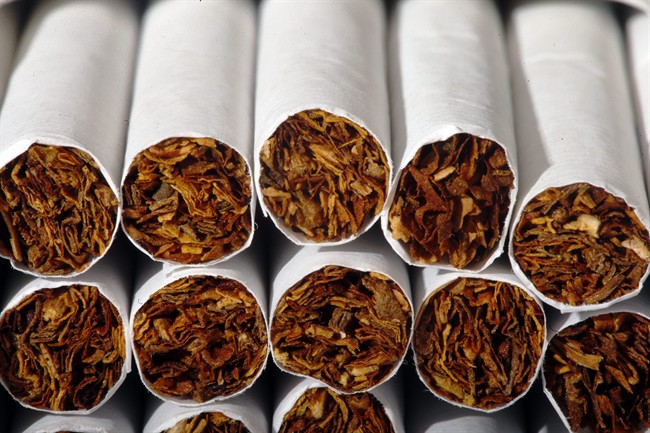Frontline doctors need to step up and play a pivotal role in stopping adolescents and teens from smoking, according to new Canadian guidelines.

They need to start asking kids if they’ve tried smoking cigarettes and if they understand the repercussions on their health. That’s what a first-ever guideline out of the Canadian Task Force on Preventive Health Care is urging family physicians to do.
The recommendations were published Monday in the Canadian Medical Association Journal.
“People who smoke early on tend to be smokers later on in life and continue smoking and have a difficult time quitting. As you know, the health risks of tobacco smoking on health is well documented – half of regular smokers die prematurely, their quality of life is significantly impacted because of cardiovascular diseases and respiratory diseases caused by smoking. More than 85 per cent of lung cancers are linked to smoking,” Dr. Brett Thombs, chair of the guideline’s working group, told the CMAJ in a podcast.
“There’s a massive impact on longevity of life,” he warned.
READ MORE: Your guide to quit smoking for good
Yet there are 4.2 million smokers in Canada, according to the Canadian Cancer Society. Ninety per cent of adult smokers first lit up by age 18.
About 18 per cent of Canadian youth, between Grades 6 and 12, have tried smoking. Three per cent of kids tried smoking by Grade 6 and at the end of Grade 12, 36 per cent of teens tried smoking cigarettes.
Policymakers around the world have been steadfast in trying to stop a new generation from becoming smokers. In the U.K., for example, one theory that’s been thrown around is banning cigarettes to anyone born after the year 2000.
In the Canadian task force’s recommendations, doctors are being tapped to do the heavy lifting on getting kids to butt out, or avoid smoking altogether.
READ MORE: Smokers who quit before 40 save a decade of their lives, study suggests
Over the past few years, the task force has been combing over recommendations for a string of guidelines – from Pap tests for cervical cancer, breast cancer screening and how to address chronic conditions, such as diabetes, hypertension and obesity.
This time around, the experts worked with family doctors, patients, family organizations and other stakeholders. Addressing smoking in Canadian youth was “clearly indicated as a great need.”
The guidelines are simple: doctors need to use their sway to talk to parents and their kids about smoking by asking questions about whether kids have tried it, if there’s cigarette smoking in the household and if they understand what the health risks are.
“The most important thing is doctors use their position and expertise in health to make a point that this will have a real negative impact on health,” he said.
READ MORE: Woman featured in graphic anti-smoking ads dies of cancer, hailed as hero
“Essentially this is for just about all children and youth,” he said, noting that this would be a new step that doctors aren’t currently taking on.
Read the full guidelines here.
carmen.chai@globalnews.ca
Follow @Carmen_Chai


Comments